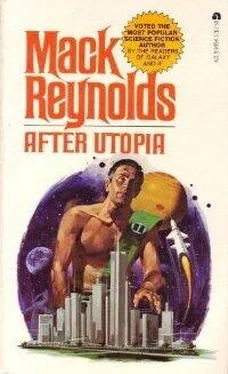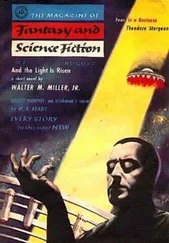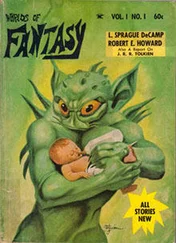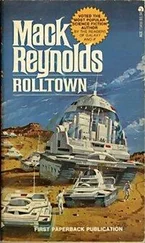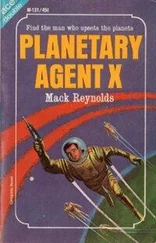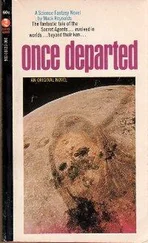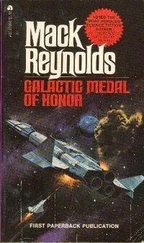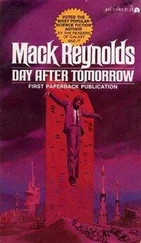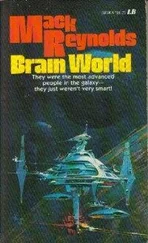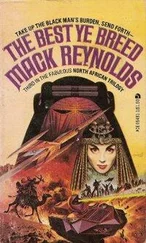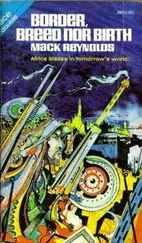Mack Reynolds - After Utopia
Здесь есть возможность читать онлайн «Mack Reynolds - After Utopia» весь текст электронной книги совершенно бесплатно (целиком полную версию без сокращений). В некоторых случаях можно слушать аудио, скачать через торрент в формате fb2 и присутствует краткое содержание. Год выпуска: 1977, ISBN: 1977, Издательство: Ace Books, Жанр: Фантастика и фэнтези, на английском языке. Описание произведения, (предисловие) а так же отзывы посетителей доступны на портале библиотеки ЛибКат.
- Название:After Utopia
- Автор:
- Издательство:Ace Books
- Жанр:
- Год:1977
- ISBN:0-441-00958-1
- Рейтинг книги:4 / 5. Голосов: 1
-
Избранное:Добавить в избранное
- Отзывы:
-
Ваша оценка:
- 80
- 1
- 2
- 3
- 4
- 5
After Utopia: краткое содержание, описание и аннотация
Предлагаем к чтению аннотацию, описание, краткое содержание или предисловие (зависит от того, что написал сам автор книги «After Utopia»). Если вы не нашли необходимую информацию о книге — напишите в комментариях, мы постараемся отыскать её.
After Utopia — читать онлайн бесплатно полную книгу (весь текст) целиком
Ниже представлен текст книги, разбитый по страницам. Система сохранения места последней прочитанной страницы, позволяет с удобством читать онлайн бесплатно книгу «After Utopia», без необходимости каждый раз заново искать на чём Вы остановились. Поставьте закладку, и сможете в любой момент перейти на страницу, на которой закончили чтение.
Интервал:
Закладка:
The fighting started October 24, a Wednesday, and by Saturday the Hungarians had knocked out thirty tanks and armored cars. In the long run, it availed them nothing. The Russians hurried in new elements from the north. In some of the towns in the near vicinity of Budapest, the fighting continued until November 14. But a country the size of Indiana does not take on a foe the size of the Soviet Union.
Tracy and Dan called it quits after the first week in November and escaped to the south, crossing over into Yugoslavia, and making their way to Belgrade, still in the guise of journalists. From there they cabled the executive committee and Tracy was returned to Tangier, Dan sent on a mission to South America.
Chapter Thirteen
Tracy awoke just before dawn with a bad taste in his mouth and feeling sticky and dirty from having slept in his clothes. He peeled out of them, considered dialing pyjamas from the distribution center and then decided the hell with it. Nude, he climbed back into the bed. However, he didn’t get any more sleep.
He thought back to Budapest. Should he and Dan have stayed on and gone down with the rest of the Freedom Fighters? Gone down before the Russian tanks, as Gyula Rajk, the Hungarian poet organization member had gone down?
No, there would have been no point in that. Dan Whiteley and he had kept in the fighting, training the students and others in guerrilla tactics, participating in the action in the streets, until all possibilities of success were gone. Only then had they fled, to take up the fight elsewhere.
He lay, stretched out there, for two hours, and until daylight; then he came to his feet, and went to the order box, and dialed for fresh clothing from the distribution center, as Betty had shown him. He had no preference and dialed exactly the same clothing he had worn the day before. While waiting for them, he threw the clothes he had the day before into the disposal chute in the bathroom.
He showered, marvelling all over again at the efficiency of the stall. The temperature control, the soap button, the massage units, the pediatric units… Christ, they felt good… and finally the automatic dryer. He hadn’t the vaguest idea of how that operated. It wasn’t just warm, dry air. Somehow or other the water on your body just disappeared when you activated the dryer button.
He used the depilatory to remove his facial hair. It was one of the few new advances that really satisfied him. He had always hated shaving, either with soap and razor, or with an electric razor. Now if only you could read while you were going through the routine, it wouldn’t be so bad. You simply smeared this stuff, over your face and then immediately wiped it away, complete with whiskers. There was no after-effect, none of the burning he used to feel after a shave. In fact, into the depilatory was even built some sort of astringent which left the face feeling healthy and fresh.
His toilet complete, he went into the other rooms, looking for his hosts. The day was a bit gloomy, by Tangier standards, and they weren’t on the terrace but in the breakfast nook, all three of them.
They went through the morning amenities and Tracy seated himself across from Edmonds.
The other three already had food before them. Tracy had been shown the system of ordering and now dialed for coffee, toast, butter, and marmalade. Over the years, he had become accustomed to the continental breakfast, as opposed to the American ham and eggs, or bacon and eggs, or flapjacks.
While waiting, he looked at Jo Edmonds and said, “Your reason for taking me on our night on the town last night was obvious.”
Edmonds nodded. “It was as good a method as any to show you the way the world is going, I should think.”
The center of the table sank, and returned, with Tracy’s food. He pulled the dishes before him, took up the butter knife and began to butter his toast.
He said, “Okay. I got the message. But the thing is, this society still has a lot going for it. You’ve eliminated poverty, pollution, the shortage of natural resources, overpopulation, crime… just about everything that plagued us in my time, including war.”
Walter Stein said thoughtfully, “I would not for a moment condone war, but, for that matter, it is now quite impossible, since we have global unity, and no such things as armies, air forces, or navies exist. But in the past, war was one of the elements that sometimes promoted rapid advances of the race. Take World War One. In 1908 the Frenchman Gabriel Voisin made what was probably the first valid aircraft flight and—”
Tracy scowled at the academician. “I thought the American Wright brothers made the first heavier-than-air flights.”
Stein chuckled. “Yes, and the Russians claimed it was a Ukrainian, I believe. The flights that the Wrights made in 1903 had a catapult-assisted takeoff. But Voisin’s biplane took off under its own power and flew a one-kilometer circuit. But what I was getting at was that by 1918 the airplane was a modern reality, as a result of the necessities of war. Voisin himself built over ten thousand planes for the Allies. A year after the war, in 1919, the first aircraft were already flying the Atlantic.”
Tracy protested again. “I thought it was Lindbergh in 1927 or so.”
“He made the first nonstop flight. They did it step by step in flying boats. Confound it, Tracy, stop interrupting. Look at the Second World War. Under its pressures were developed the first spaceship, the German V-two, nuclear fission, practical radar and a half dozen antibiotics in the field of medicine, among other things. Even during the so-called cold war an enormous number of discoveries were made by the militarists of various countries. In fact, the eruption into space was a development of the Cold War, in spite of flowery statements to the contrary. It was the competition between the United States and the Soviet Union which led first to the sputniks and finally to the first man on the moon.”
“However,” Tracy said dryly, “I have been in a few wars, and I’m just as glad that war has been eliminated.”
Betty frowned at him. She said, “So are we, obviously, but father’s point is that man’s incentives for progress have been taken from him. We have eliminated war, but have found nothing to replace it.”
Tracy put butter and marmalade on another piece of his toast. “All right,” he said. “Tell me something about this International Congress of Guilds.”
Stein said, “It’s a planning body which coordinates all production, distribution—”
“You told me that the other day. Who composes it?”
“Representatives from all the different guilds. The Medical Guild, the Industrial Production Guild, the Communications Guild, the Transportation Guild, the—”
“All right. I get the message. Every useful type of work is represented in one guild or the other. How are these representatives appointed?”
The three of them looked at him as though the question was idiotic. Edmonds said, “Why they’re elected by the membership of the guilds.”
“I see,” Tracy said, taking a sip of his coffee. “And this congress is the nearest thing to a government the world has these days.”
“Yes.” Tracy tilted his head slightly as he looked at Jo Edmonds. He said, “You told me last night that the socioeconomic system today was anarchism. But what you’re describing now isn’t anarchy. Anarchy presupposes no government at all, which, of course, is nonsense in a highly industrialized society. What you’re describing seems to be a highly refined type of syndicalism. I thought you were a student of socioeconomics.”
Edmonds smiled wryly and said, “I was being facetious last night.” He thought about it. “I don’t believe that the present socioeconomic system fits any of the cut-and-dried definitions of the past: capitalism, feudalism, socialism, communism. Perhaps you could make an argument for calling this a form of socialism. God knows, everybody who ever called himself a socialist had a different definition of what it was. In your day, some people accused Roosevelt of being a socialist. Hitler called himself a National Socialist. The British were supposedly under a socialist government, as were the Scandinavian countries, all of them complete with royal families, a holdover from feudalism. The Russians called themselves, interchangeably, both communist and socialist. Oh yes, the word socialist is elastic, so, if you wish, you could call this socialism.”
Читать дальшеИнтервал:
Закладка:
Похожие книги на «After Utopia»
Представляем Вашему вниманию похожие книги на «After Utopia» списком для выбора. Мы отобрали схожую по названию и смыслу литературу в надежде предоставить читателям больше вариантов отыскать новые, интересные, ещё непрочитанные произведения.
Обсуждение, отзывы о книге «After Utopia» и просто собственные мнения читателей. Оставьте ваши комментарии, напишите, что Вы думаете о произведении, его смысле или главных героях. Укажите что конкретно понравилось, а что нет, и почему Вы так считаете.
